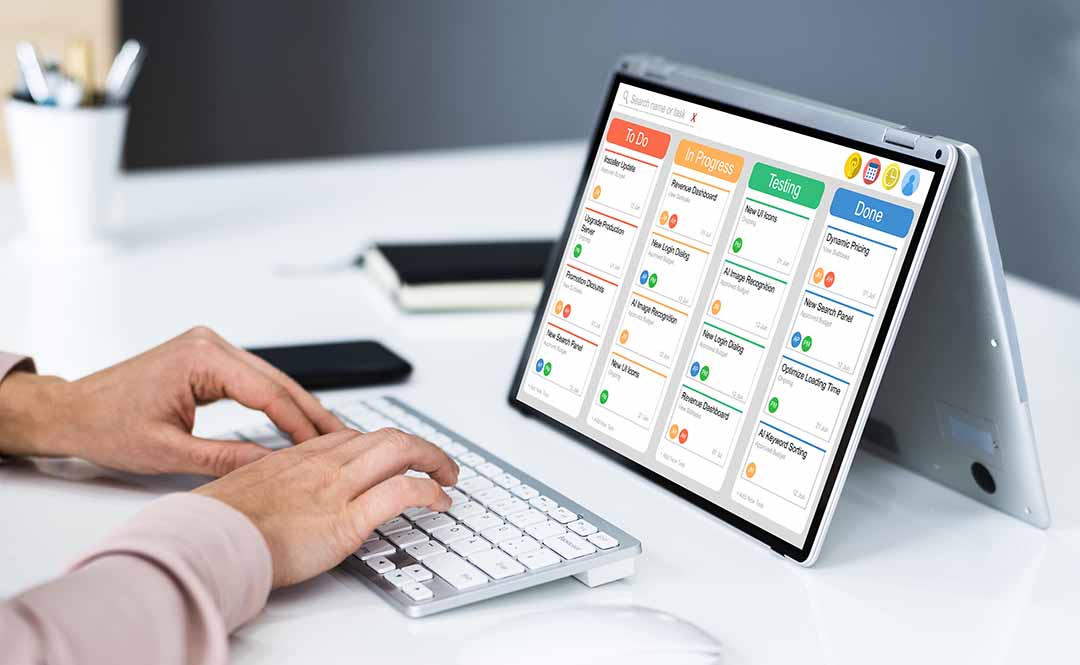“Hybrid jobs are not a fad. In fact, they are an inevitable return to the banality of our human condition: the alternating and continuous mixing of activities” – Audrey Chapot, anthropologist. Source loptimisme.pro
From “sales and marketing manager” to “sales and digital manager,” more and more job offers are promoting a new cross-sector approach among certain positions, which involve several distinct disciplines. This hybridisation of certain key corporate jobs is accompanied by another major change: the development of hybrid work, which combines face-to-face and remote work and is reshaping working life, particularly since the beginning of the Covid-19 crisis.
The profession of sales manager is no exception to the rule and is becoming hybrid with new functions, specifically marketing and digital. Two major questions that arise are what role sales directors should play with “hybrid” sales, marketing and digital responsibilities, and how this double or even triple role can enable them to meet the expectations of their customers, but also their teams, even better. Find out in this article.
Digital technology is transforming the role of the sales director
Digital technology is revolutionising sales positions, what with social selling on social media, the use of sophisticated CRM facilitating access to information and customer follow-up, among other things. Sales managers are now fully embracing these new tools to get the best results. As well as understanding digital challenges and applying them directly to sales strategies, sales directors are expected to actively participate in the digital transformation of their entire company by supporting this change and teams in particular, to get them on board the digitalisation train.Furthermore, in parallel with the acquisition of “digital” soft skills, hybrid work between face- to-face and remote work is also becoming a new norm because of the extension of health constraints, but also because of the independence it offers employees. Incidentally, it is not uncommon to see job advertisements clearly advertising hybrid, fully remote or face-to-face positions.
New tools for new uses
Online collaboration tools
In the context of hybrid work, video conferencing is replacing traditional meetings and allows greater flexibility regarding time and space. It is therefore particularly important to master tools like Zoom, Google Meets and Microsoft Teams in this context.
Customer follow-up
Customer care is more than ever a priority for sales teams. Today’s customers have access to all the information they want thanks to search engines, which often makes them more inpatient and very demanding. To create a strong relationship with them, you therefore need to know who they are and exactly what they are looking for. Nowadays, CRM systems let you quickly discover the characteristics of potential customers, their buying patterns and their expectations. This means it is possible to geographically locate the people who visit the company’s website, but also to see the products they are interested in before approaching them through online chat or email.
Stock management
Every sales manager knows that stock management is a key element in ensuring the sustainability of a business.
In recent years, software to facilitate inventory and supply chain management has been developed around the world. Equipped with automation features, it allows sales to be monitored and stock levels to be checked regularly, giving a new level of responsiveness valued by customers at the end of the chain.
In addition to these tools that modern-day sales managers need to master, expectations towards these managers have changed in recent years: they are expected to recruit their team, unite their staff around a common vision and retain the best talent etc. This is why the human qualities of sales managers, as well as their ability to adapt to an increasingly competitive and digitalised commercial context, are being increasingly valued.
The new generation of sales directors: combining marketing, digital technology and sales!
“Hybridisation is also a source of personal progress: it is worth mastering the tools if the time saved is not spent using them more and more, but on thinking and human relations. And that can make you more creative!” – Pascale Patat-Dubouis, senior professor of practice at IÉSEG. Article on actionco.fr
When you think of a sales manager, you naturally think of sales strategy and turnover development. While both of these objectives remain unchanged, the ways they are implemented are quite different.
In an era of hybrid work, driven by a move towards digitalisation, the role of sales managers is changing, with new responsibilities now added which were not initially part of their prerogatives. For the days of cold, distant phone calls and the famous door-to-door approach have given way to modern strategies designed to meet the needs of increasingly exacting customers.
In addition to business development, sales managers have to get to grips with outbound and inbound marketing. More and more sales managers are being objectified based on marketing results alone. In the digital age, the role of sales marketing has become a core part of sales lead acquisition strategies.
The figurehead of this new commercial trend is inbound marketing, which consists of acquiring customers online by distributing relevant content (blog articles, white papers, videos, customer case studies and testimonials etc.). By definition, inbound marketing is the opposite of outbound marketing, which refers to soliciting customers, cold, to try and sell a product or service.
Although still used in some sectors, “traditional” marketing, which relies heavily on phone canvassing, is beginning to show its limits. This is all the more so in the age of teleworking, where prospects are more often at home or in co-working spaces than in the office. Today’s customers want to be advised and companies to be really interested in their needs. This is where inbound marketing, which is based on analysing needs and supporting the online purchase process, is of particular importance.
Integrating qualitative objectives to achieve digital transformation
Sales managers contribute to the digital transformation of their company, its processes and its operations. In this respect, their responsibilities now include tasks directly linked to the digital shift adopted by the organisation.
Their new performance indicators include a growing number of qualitative objectives, including training and raising awareness of new digital tools, preventing psychosocial risks linked to remote working, and implementing new remote management methods etc. These new qualitative aspects must, however, be perfectly quantifiable and measurable to be linked to a bonus that rewards as fairly as possible the involvement of each person in the management of the digital shift.
Finally, project management and team management play a central role in the job description of the new sales director. From managing marketing and digital KPIs, to analysing the conversion funnel, establishing marketing automation scenarios, but also mentoring and adapting their management to sales staff as well as to marketers and digital specialists, the sales director of 2022 will definitely be connected and on all fronts!





